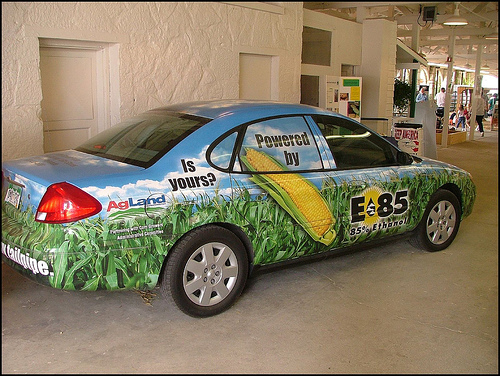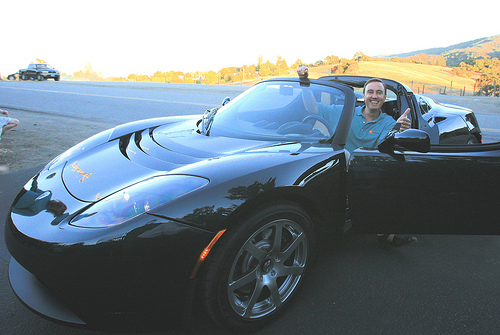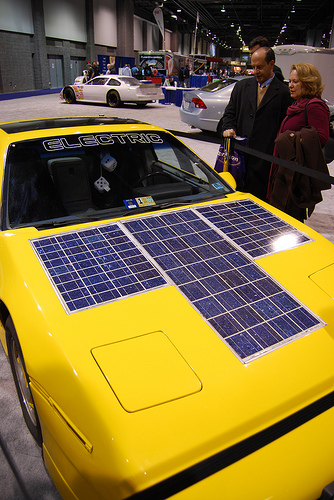Automobiles have become an integral part of life over the past century. Unfortunately, the idea of sustainable transport wasn’t considered until more recently. Limited performance models powered by hydro motors and those operating on electricity were quickly forsaken for the power and convenience of gasoline and diesel engines.

Why Petroleum Based Fuels Are Not the Answer
According to the American Petroleum Association, spills and leaks from offshore drilling rigs contaminate the oceans with nearly 15 million gallons of oil per year. Oil rigs pose a number of environmental hazards to the water and animals surrounding them, as well as those working on the rigs – not to mention the fact that petroleum is a nonrenewable resource that may or may not be available in the future.
Obviously, our dependency on gasoline is something that must be overcome. The potential of electricity, hydrogen power, and alternative fuels are once again being examined by car manufacturers around the globe – and this time, the future for sustainable transport is bright.
Biofuels and Ethanol – A Quick Fix or a Solution?
The importance of biofuel and biodiesel have been considered for nearly 3 decades, but has seen much more attention since 2006. Several countries have put plans in place to convert fuel use to bio-alternatives within the next few years. These alternative fuel options are much cleaner than petrol-based fuel without the harsh impact and hazards associated with drilling, but ethanol-based biofuels have their share of environmental concerns as well.

First-generation biofuels typically convert naturally-grown plants into ethanol or vegetable oil – then it is processed into fuel. These crops, and the process of photosynthesis, remove carbons from the air and are thought to decrease greenhouse gas emissions by 20% over conventional fuels.
Biofuel production has seen quite a bit of controversy for a number of reasons, but primarily because corn and grain crops are cultivated strictly for ethanol or vegetable oil production – thus detracting from our global food supply. Increased demand to meet the needs of both food use and ethanol or oil production has created a significant rise in food costs.
The most recent debate over the worth of biofuels may be the greatest concern – recent studies have found that ethanol production for fuel may actually accelerate global warming, causing more harm than good in the long run. Acres and acres of land have been converted from the carbon-reducing forests and grasslands they once were to crops of soy, corn, or sugarcane for biofuel. Scientists estimate that palm oil plantations in Indonesia will require more than 400 years to actually benefit the world.
Beyond First-Gen Biomass Fuels
Corn, sugarcane, soybeans, and other consumable crops are not the only option for biofuel production. Perennial plants cultivated on already degraded farm land is one option currently being examined – the key to sustainable transport is finding a solution that will not alter the natural cycle of the environment.
The possibilities for biomass are seemingly endless – some options may include:
- Human fat.
- Wood biomass, using mulch and trimmings from preventive plant care – like SunFuel currently under testing by Volkswagen.
- Dirty diapers.
- Biodegradable algae fuel.
- Synthetic microorganisms.
- And other strange fuel alternatives.
Hybrid and Electric Success
From tax-incentives and reduced bank loan rates to the freedom of driving in any HOV lane regardless of occupancy, hybrid vehicles are thought by many to be one of the biggest advancements in sustainable transport. Today’s hybrids greatly reduce emissions, are much roomier than early models – check out the Lexus RX Luxury Utility Vehicle, and can go much further and faster on a charge. Unfortunately, typical hybrid vehicles still depend on gasoline.

Advancements in battery technology have paved the way for 100% electric cars, completely independent of nonrenewable fuels. The Tesla Roadster features all the fun and excitement of a luxury sports car – 0 to 60 in 3.9 and a top speed of 125 – for less than 2 cents per mile.
Electric cars may play a big role in the future of sustainable transport but there are still disadvantages that will need to be overcome before electric power is the answer.
- The battery that powers hybrids and electric cars pose the greatest threat. Lead batteries are extremely dangerous in accidents while lithium-ion batteries can cause greater fire hazards. Disposing of these toxic components can also create environmental dangers.
- Electric cars require charging, just like your laptop and mobile phone. Limited driving around town is ideal, but longer commutes, vacationing, and other drives will require plug-in stations that are currently few and far between.
The Power of Nature Meets Modern Transport
There are many other possibilities currently being tested in the world of transportation. Hydrogen powered vehicles are already on the road but are still quite costly to manufacture and to operate. Solar power is another viable option for the future.

From the strange and disgusting materials considered for biomass fuel to the natural rays of sunlight needed for solar power, the options available for alternative fuel and sustainable transport are amazing – and there is still so much more to discover as we search for automotive independence. What do you consider to be the most viable option for renewable fuel? What is the most unusual?

Loved this article – great job! You are right – there is no easy solution to the oil crisis – but we must invest in change. Perhaps the election last night was a beginning. Thanks for the great blog!
I like hybrid cars. Thanks for the bonus information. keep it up!
It seems this alternative fuel concept is very feasible in becoming the majority in the very near future. The new ford focus hybrd, 2010, appears to be the next big hybrid concept.
You are right Spikey, I also believe the same, let's see how it goes!
I love this articles. The pictures of those cars are so cool. How much are those cars? I'll loan for me to be able to buy one of those cars.
Loved this article – great job! You are right – there is no easy solution to the oil crisis – but we must invest in change. Perhaps the election last night was a beginning. Thanks for the great blog!
Insightful read. I have just bookmarked this at stumbleupon. Hope others find it as interesting as I did.